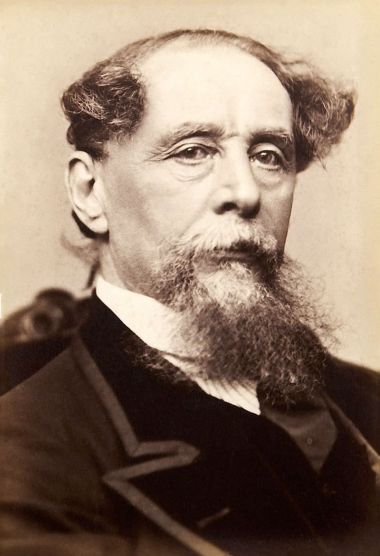How Dickens Changed Christmas

A self-published book written in six weeks doesn't sound particularly auspicious, but when Charles Dickens is the author, magical things can occur. His 1843 novella A Christmas Carol – with its transformation of old miser Ebenezer Scrooge following a series of ghostly visitations – revivified Christmas with a sense of charity, making generosity fashionable and selfishness taboo (at least for the holidays).
It may be hard to imagine, but Christmas – now the world's leading holiday – was far less culturally significant in the early 19th Century. Nor was it always a family-centred affair of gift-giving and wholesome sentiment. In fact, the cities of America's former British colonies would see gangs of young men invade the streets to engage in alcohol-fueled violence, pandemonium, and looting. And "similar scenes of riot and mayhem are recorded in Canada, Australia, Newfoundland, and Britain", according to Gerry Bowler's book Christmas in the Crosshairs, which adds that Christmas was "almost utterly ignored" in Scotland, and that the holiday in England was in a "long, slow decline, kept alive chiefly in the rural areas".
The sea change took place with A Christmas Carol, which was instantly popular. The complete first edition of 6,000 copies sold out within days of its initial date of publication, 19 December 1843, just a few months after the author, contending with a growing family and a dwindling bank account, first sat down to write the book.
His publisher had rejected A Christmas Carol, so the embattled scribe used his little remaining funds to print the book himself. The timing was apt: amid the cold modernity of the rising Industrial Revolution, audiences were "in desperate need of spiritual renewal, ready to embrace a book that ended with blessings for one and all", as told by Les Standiford's book The Man Who Invented Christmas (a title that appears intentionally sensational).
The Dickens novella sold 15,000 copies within its first year, as London theatres began staging adaptations and unscrupulous publishers – unmoved by the book's uplifting message – began releasing unlicensed versions. Because of such piracy, the creator of Scrooge was getting Scrooged mightily on the profits, until he eventually embarked on reading tours. These events attracted huge crowds hungry for the Christmas spirit Dickens so aptly evoked.
Within a few years of A Christmas Carol's debut, workhouses in England were serving specially-made Christmas dinners and many businesses began to close for the holiday. Real-world change was taking place owing to a work of fiction that "interwove nostalgia for the past and anxiety about the present, and presented Christmas as a palliative to both", as related by Ronald Hutton's book Stations of the Sun: A History of the Ritual Year in Britain.
The Christmas novella also deeply impacted many Americans, including one New England factory mogul, who, after attending a Dickens reading, had his own conversion experience and decided to give every employee a free turkey and the day off on Christmas.
As thoroughly involved with Christmas as the book is, there is very little overt mention of religion and scholars have debated over the extent to which religious sentiment factors into the work. Dickens was baptised in the Church of England but was not raised in a very religiously observant household. As an adult, he would be critical at times of organised religion, but remained a Christian (however vague his denomination) in his outlook and writings, including The Life of Our Lord – a book that was written for the Dickens children only and did not see publication until more than six decades after the author's death.
In the years following A Christmas Carol, Dickens would publish four other Christmas books and many more Christmas-related short stories. But all these other works combined would not make anywhere near the impact of his 1843 endeavour, which has seen more theatrical and television adaptations than any other Dickens classic.
The famed writer certainly didn't invent Christmas, but he reinvented it with a needed dose of charity and goodwill – thanks to a quick little book that has never gone out of print since 1843. And, thankfully, its message has never gone out of style.
Ray Cavanaugh has written for such publications as Church Times, The Guardian, and The Washington Post.











